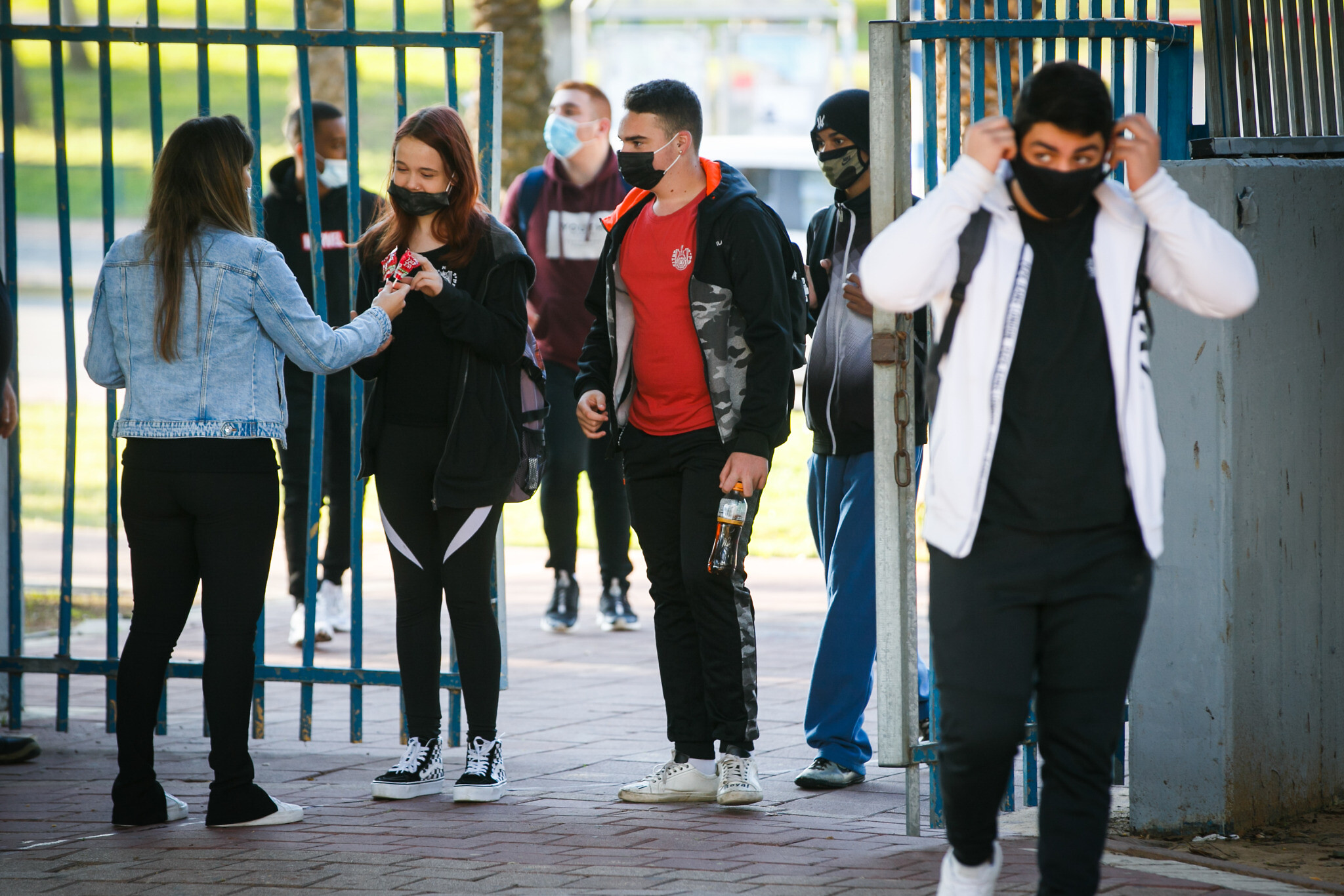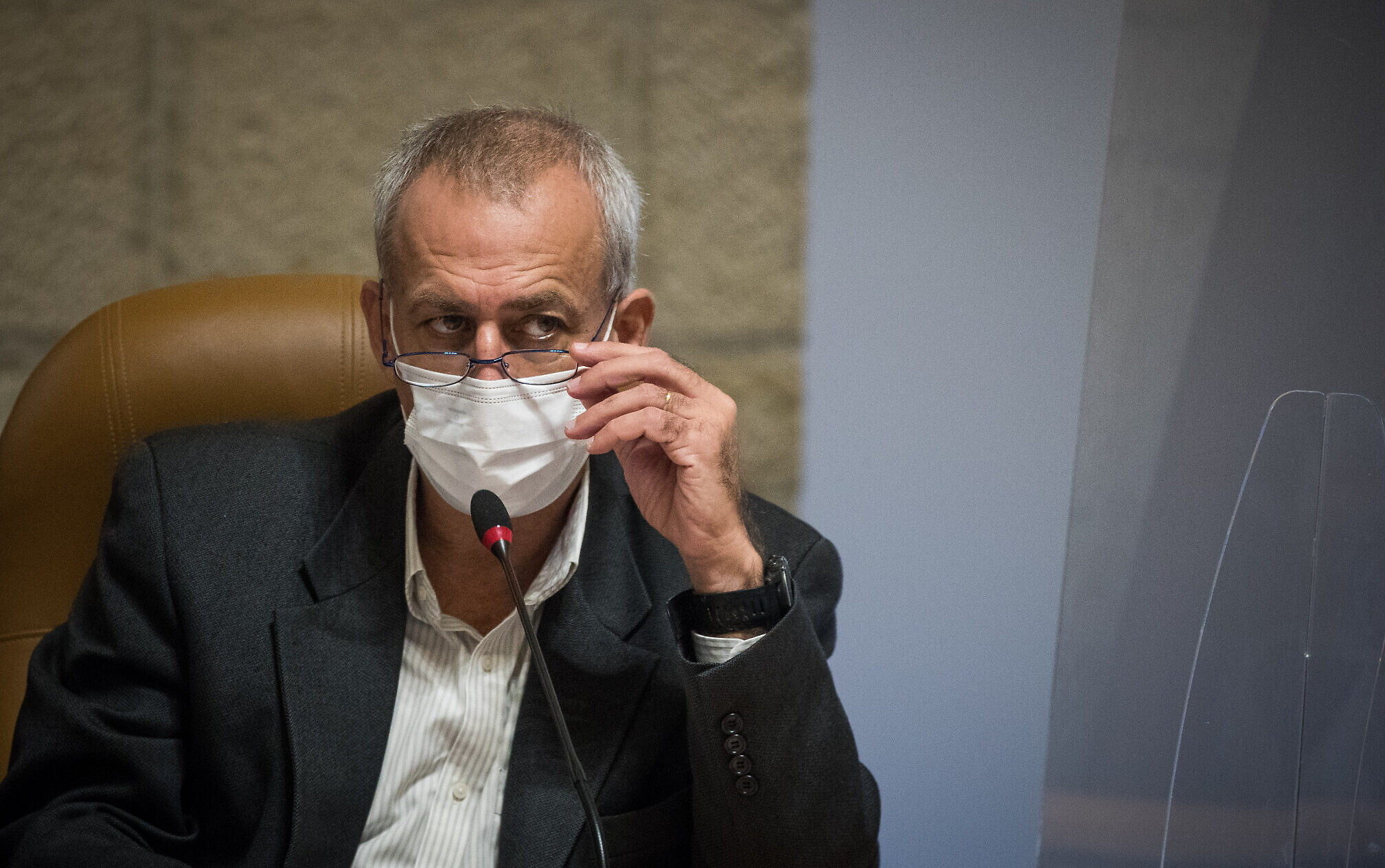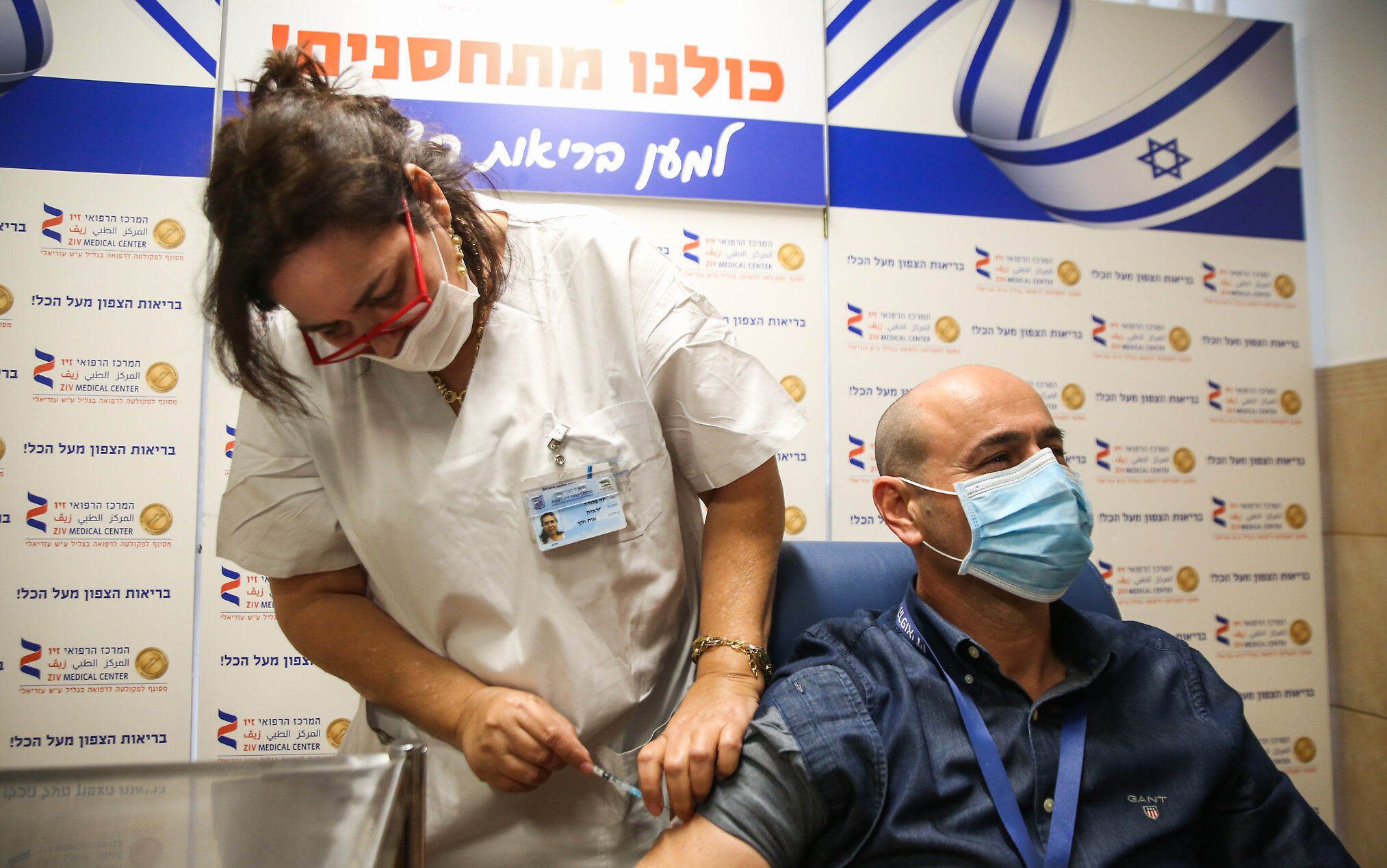Prime Minister Benjamin Netanyahu and the Health Ministry early Thursday announced a third national lockdown to take effect Sunday in order to curb a resurgence of COVID-19.
The new lockdown will begin Sunday at 5 p.m. and last for at least two weeks. The restrictions will be extended for an additional two weeks if morbidity rates do not decrease significantly.
The closure was announced in a joint statement from Netanyahu and the Health Ministry. It said the government had agreed to the restrictions “in principle,” but that the full list of regulations was still awaiting final approval from government ministers.
The rules will bar Israelis from entering another person’s home, except for immediate family members; restrict movement to 1 kilometer from home, with exceptions, such as for vaccinations; shut down commerce, leisure and entertainment; limit public transportation to 50 percent capacity; and limit workplaces that do not deal with customers face-to-face to 50% capacity.
Restaurants will be allowed to do delivery, but takeaway orders will be banned. Gatherings will be restricted to 20 people outdoors and 10 indoors, and individual sports activities, such as jogging, will be allowed.
The terms are similar to the last lockdown, in September.
In contrast to previous lockdowns, however, the education system will continue to function, with some restrictions. Kindergarten, grades 1-4, and grades 11-12 will hold classes from 8 a.m. to 1 p.m. Parents will be able to drop their children off at 7 a.m. and pick them up at 2 p.m. Special education programs will continue as usual.

Israeli students arrive at a high school in the southern city of Ashdod, November 29, 2020. (Flash90)
Separated parents with joint custody of their children will be able to transfer the children without restrictions.
The new lockdown will end the so-called “green islands” program, which allowed travelers free rein in the tourist areas of Eilat and the Dead Sea.
The lockdown will be extended by two weeks, to a month in total, if the number of daily infections remains above 1,000 and the viral basic reproduction number remains above one. The basic reproduction number is the average number of people each virus carrier infects.
The statement from Netanyahu and the Health Ministry came after hours of deliberations held by phone with other government officials. Netanyahu and Defense Minister Benny Gantz agreed on the terms of the restrictions, along with Health Minister Yuli Edelstein, Interior Minister Aryeh Deri, National Security Adviser Meir Ben-Shabbat and Science and Technology Minister Yizhar Shai, according to Hebrew media reports.
The lockdown announcement came as the number of new infections has surged to over 3,000 cases per day for the last several days, and as fears grow of a new, more transmissible variant of the virus.
Speaking Wednesday morning to the Kan public broadcaster, coronavirus czar Nachman Ash said that “the situation calls for an immediate closure.”

Israel’s coronavirus czar Nachman Ash visits the Jerusalem Municipality, November 22, 2020. (Yonatan Sindel/Flash90)
Citing rising infection numbers, Ash said, “There is a disturbing jump in morbidity. The situation is worrying.”
Ash warned that Israel could see another 3,000 virus deaths, bringing the toll to over 6,000, if a lockdown is not rapidly instituted.
“It must be understood there is no choice but to go into lockdown. If action had been taken according to our recommendations two weeks ago, this may have been avoided. As we predicted, the morbidity rose significantly, including morbidity of the seriously ill,” he said.
In a blow to the Health Ministry, the head of its epidemiological department resigned on Wednesday, launching a scathing attack on the military’s handling of epidemiological probes.
Liora Valinsky, Director of Public Health Nursing at the ministry, wrote in her resignation letter that the military, which has been tasked by the government to carry out the investigations, was running an ineffective, unprofessional system that is sending thousands of people into quarantine unnecessarily.
Also Wednesday, Edelstein said the new British strain of the coronavirus, which is believed to be far more contagious, has been found in four cases in Israel.
Three of the cases were people who had recently returned from the UK and were staying in state-run hotels. However, the fourth person had not been abroad and had been infected by an apparently unidentified individual inside Israel, signaling the new strain could already be spreading in the country. It was not yet clear whether that person had come into contact with someone who had returned from the UK.
A new rule went into effect Wednesday ordering all Israelis arriving from abroad to quarantine at state-operated and specifically designated hotels. Previously, Israelis requiring quarantine after returning from countries with high infection rates could self-isolate in their own homes.
Israel’s two previous lockdowns, in April and September, succeeded in bringing down infection numbers, but morbidity ballooned again as the closures were rolled back.

A medical worker receives a COVID-19 vaccine at Ziv Medical Center in the northern city of Safed, December 21, 2020. (David Cohen/Flash90)
Though Israel in recent days began mass vaccinations for the population, health experts have warned it will take two to three months for the inoculations to start mitigating the pandemic throughout the population.
Edelstein said Wednesday that 65,000 Israelis had been vaccinated during the day, bringing the total number of vaccinations to 140,000.
Adding to Israel’s virus woes, the country was plunged into fresh political chaos Tuesday with the Knesset dissolved and new elections scheduled for March.
The Health Ministry announced on Wednesday that 3,805 coronavirus cases were confirmed the previous day, bringing the number of infections in Israel since the pandemic began to 385,022.
The ministry said that 4.3% of tests came back positive on Tuesday.
The number of active cases in the country stood at 29,997, with 497 patients in serious condition, including 117 on ventilators. Another 195 were in moderate condition, with the rest showing mild or no symptoms.
The death toll rose to 3,150, the ministry said.
Related posts:
Views: 0
 RSS Feed
RSS Feed

















 December 24th, 2020
December 24th, 2020  Awake Goy
Awake Goy  Posted in
Posted in  Tags:
Tags: 
















